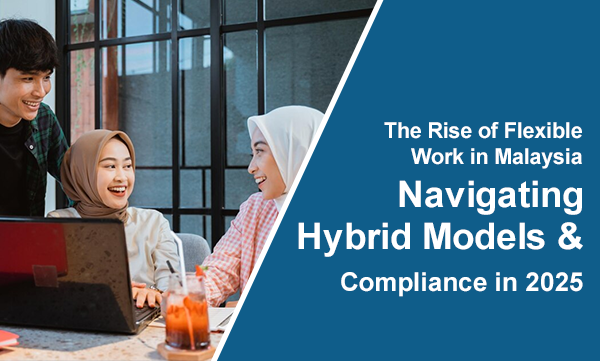
The Rise of Flexible Work in Malaysia: Navigating Hybrid Models and Compliance in 2025
Introduction
Flexible work arrangements (FWAs) have become a significant aspect of the Malaysian workforce landscape. With the amendments to the Employment Act 1955, effective from January 1, 2023, employees can now apply for FWAs, including changes to working hours, days, or location. The Star
Understanding the Legal Framework
Sections 60P and 60Q of the Employment Act 1955 outline the provisions for FWAs. Employees may request changes to their work arrangements, and employers are required to respond within 60 days, providing reasons for any refusal.
Benefits of Flexible Work Arrangements
Enhanced Work-Life Balance:
Employees can better manage personal and professional responsibilities.
Increased Productivity:
Flexible schedules can lead to higher employee engagement and output.
Talent Attraction and Retention:
Offering FWAs can make companies more attractive to potential and current employees.
Implementing FWAs Effectively
Clear Policies:
Develop comprehensive guidelines outlining eligibility, application procedures, and expectations.
Training for Managers:
Equip leaders with skills to manage remote or flexible teams effectively.
Technology Utilization:
Leverage digital tools to facilitate communication and collaboration among dispersed teams.
How HR2eazy Supports FWAs
HR2eazy offers solutions to streamline the implementation of FWAs:
Flexible Scheduling Tools:
Customize work schedules to accommodate various arrangements.
Remote Work Management:
Monitor productivity and engagement of remote employees.
Compliance Tracking:
Ensure adherence to legal requirements related to FWAs. Reuters
Learn more about how HR2eazy can assist your organization in adopting flexible work models: HR2eazy
How HR2eazy Supports FWAs
HR2eazy offers solutions to streamline the implementation of FWAs:
Flexible Scheduling Tools:
Customize work schedules to accommodate various arrangements.


